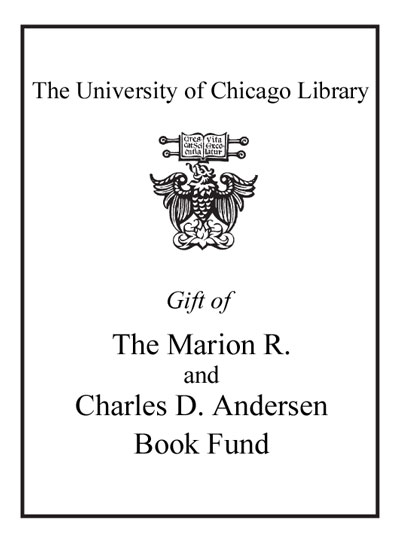Overcoming the odds : the benefits of completing college for unlikely graduates /
Saved in:
| Author / Creator: | Brand, Jennie E., author. |
|---|---|
| Imprint: | New York : Russell Sage Foundation, [2023] ©2023 |
| Description: | xxvii, 298 pages : illustrations ; 23 cm. |
| Language: | English |
| Series: | The American sociological association's rose series in sociology Rose series in sociology. |
| Subject: | |
| Format: | Print Book |
| URL for this record: | http://pi.lib.uchicago.edu/1001/cat/bib/13297868 |
MARC
| LEADER | 00000cam a2200000 i 4500 | ||
|---|---|---|---|
| 001 | 13297868 | ||
| 008 | 230425t20232023nyua b 001 0 eng | ||
| 005 | 20231205195543.7 | ||
| 010 | |a 2023011119 | ||
| 035 | 9 | |a (GOBI)99994916562 | |
| 040 | |a DLC |b eng |e rda |c DLC |d OCLCF |d BDX |d YDX |d XFF | ||
| 020 | |a 9780871540089 |q paperback | ||
| 020 | |a 0871540088 |q paperback | ||
| 020 | |z 9781610448932 |q electronic book | ||
| 035 | |a (OCoLC)1377552442 | ||
| 042 | |a pcc | ||
| 050 | 0 | 0 | |a LC191.9 |b .B75 2023 |
| 082 | 0 | 0 | |a 378 |2 23/eng/20230426 |
| 100 | 1 | |a Brand, Jennie E., |e author. | |
| 245 | 1 | 0 | |a Overcoming the odds : |b the benefits of completing college for unlikely graduates / |c Jennie E. Brand. |
| 264 | 1 | |a New York : |b Russell Sage Foundation, |c [2023] | |
| 264 | 4 | |c ©2023 | |
| 300 | |a xxvii, 298 pages : |b illustrations ; |c 23 cm. | ||
| 336 | |a text |b txt |2 rdacontent | ||
| 337 | |a unmediated |b n |2 rdamedia | ||
| 338 | |a volume |b nc |2 rdacarrier | ||
| 490 | 1 | |a The American sociological association's rose series in sociology | |
| 504 | |a Includes bibliographical references and index. | ||
| 505 | 0 | |a Expanding access to higher education -- Diverse benefits for diverse graduates -- College counterfactuals and estimating effects -- Unequal college chances -- Cultivating privilege and circumventing precarity -- Forming families and preventing poverty -- Reducing social assistance -- Engaging in civic society -- Inequality and investment. | |
| 520 | |a "Debates about college access often do not carefully consider what is required to speak knowledgeably about the benefits of college degrees. First, we want to know what an individual's life would look like without a college education. Second, we need to consider unequal access to higher education. Who attends and completes college, and who does not? Third, we need to determine which benefits of college we consider and how diverse benefits differ across diverse graduates. Too often, the rewards valued in public and academic debate begin and end with wages. The traditional focus on wages does not capture all the life-enhancing effects of higher education. In this book, Jennie Brand assesses how a range of long-term benefits of four-year college degree completion differs across the population. Considering socioeconomic, family-level, social assistance, and civic outcomes measures, she concludes that colleges are far from failing disadvantaged students. Their returns to degrees are substantial: a college degree not only enables underprivileged students to circumvent unemployment, low-wage work, job instability, poverty, and social assistance but also increases their likelihood of engaging in civic society"-- |c Provided by publisher. | ||
| 650 | 0 | |a Education, Higher |x Social aspects. | |
| 650 | 0 | |a College choice |x Economic aspects. | |
| 650 | 0 | |a Universities and colleges |x Admission. | |
| 650 | 0 | |a Youth with social disabilities |x Education (Higher) | |
| 650 | 0 | |a Educational equalization. | |
| 650 | 7 | |a Education, Higher |x Social aspects. |2 fast |0 (OCoLC)fst00903107 | |
| 650 | 7 | |a Educational equalization. |2 fast |0 (OCoLC)fst00903418 | |
| 650 | 7 | |a Universities and colleges |x Admission. |2 fast |0 (OCoLC)fst01161621 | |
| 650 | 7 | |a Youth with social disabilities |x Education (Higher) |2 fast |0 (OCoLC)fst01183668 | |
| 653 | |a College access | ||
| 776 | 0 | 8 | |i Online version: |a Brand, Jennie E., |t Overcoming the odds |d New York : Russell Sage Foundation, [2023] |z 9781610448932 |w (DLC) 2023011120 |
| 830 | 0 | |a Rose series in sociology. | |
| 929 | |a cat | ||
| 999 | f | f | |s bacd498b-f734-46ff-b0e6-4f4d7dafab1c |i 69beea16-43df-4524-8c2f-23a6ef8a34b1 |
| 928 | |t Library of Congress classification |a LC191.9.B75 2023 |l JRL |c JRL-Gen |i 13437595 | ||
| 927 | |t Library of Congress classification |a LC191.9.B75 2023 |l JRL |c JRL-Gen |e ANDE |b 118742934 |i 10664119 | ||

